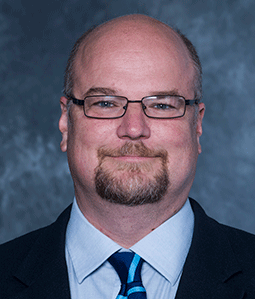College of Education
- SC.edu
- Study
- Colleges and Schools
- Colleges and Schools
- College of Education
- Faculty and Staff
- Doyle Stevick, Ph.D.
Faculty and Staff
Doyle Stevick, Ph.D.
| Title: | Associate Professor |
| Department: | Leadership, Learning Design, and Inquiry College of Education |
| Email: | stevick@mailbox.sc.edu |
| Phone: | 803-777-4158 |
| Fax: | 803-777-3090 |
| Office: | Wardlaw 318 |
| Resources: | Curriculum Vitae [pdf] |

Education
Ph.D., History, Philosophy and Education Policy Studies, Indiana University, with
a concentration in International and Comparative Education
M.A., Classical Studies, Indiana University
M.A., Ancient History, The Pennsylvania State University
B.A. with Honors, double major, History and Classical Studies, The Pennsylvania State
University
B.A. with Honors, Mathematics, The Pennsylvania State University
Research
Doyle Stevick’s research is broadly concerned with the civic mission of schools and the role of schools in creating and sustaining tolerant, democratic societies in a globally integrated world. This research focus has multiple strands, beginning with citizenship and global citizenship education, democratic approaches to leadership and policy, and forms of internationalization, including the international labor market for teachers. These issues are investigated through qualitative research methods through a cultural lens.
During the mid-late 1990s, Stevick was pursuing a doctorate in Greek and Latin literature and spending his summers excavating ancient sites in the Mediterranean, spurred in part by the impact of studying abroad in Greece, when encounters with racist extremism drove him to explore the power of education to undermine prejudice and foster pro-social dispositions. How could schooling support positive institutional transformations, like Brown v. Board of Education or the collapse of the Soviet Union? What systemic cultural and social changes were necessary to fulfill the promise of these profound changes, and how might schools foster them?
These questions led him into the field of Holocaust education--the focus of his last three books—and its contribution to Global Citizenship Education and Preventing Violent Extremism. Since 2013, he has worked extensively with the Anne Frank House; through that partnership, the College of Education tours two exhibits about the life and times of Anne Frank in South Carolina schools.
In recent years, he has variously edited a book, drafted a report and been invited to present at special events for UNESCO, the International Bureau of Education, and the OSCE’s ODIHR (Office for Democratic Institutions and Human Rights) in Costa Rica, India, Serbia, Switzerland, Ottawa and Paris. From 2014-2017, Stevick served as Director of European Studies.
Selected Publications
Books
- Eckmann, M., Stevick, E.D., and Ambrosewicz-Jacobs, A. (Eds.). (2017). Research in Teaching and Learning about the Holocaust: A Dialogue Beyond Borders. The IHRA: Berlin. (A free download is available you may download the book here [pdf]).
- E. D. Stevick & D. L. Michaels (Eds.) (2016). Holocaust Education: Promise, Practice, Power and Potential. Routledge: New York.
- Z. Gross & E. D. Stevick (Eds.) (2015). As the witnesses fall silent: 21st century Holocaust education in curriculum, policy and practice.Dordrecht: Springer & UNESCO IBE.
- Stevick, E. D. & Levinson, B.A. (Eds.). (2008). Advancing democracy through education? U.S. influence abroad and domestic practices. Charlotte, NC: Information Age Publishing.
- Stevick, E. D. & Levinson, B. A. (Eds.). (2007). Reimagining civic education: How diverse societies form democratic citizens. New York: Rowman and Littlefield.
Selected Peer-Reviewed Articles and Chapters (Complete Listing in CV)
- Stevick, E. D., & Brown, K. D. (2016). Internationalising colleges of education through the dialectic of the global and the local? A perspective and possible pathways from the American South.Intercultural Education, 1-12.
- Howie, E.K. & Doyle Stevick (2014). The “ins” and “outs” of physical activity policy implementation: Inadequate capacity, inappropriate measures, and insufficient funds. Journal of School Health.
- Brown, K. D., & Stevick, D. (2014). The globalizing labor market in education: Teachers as cultural ambassadors or agents of institutional isomorphism?. Peabody Journal of Education, 89(1), 4-16.
- Stevick, E. D. (2013). Dialogue and transformation in Holocaust education? Reweaving the tapestry of experience, research and practice. Tertium Comparationis Journal für International und Interkulturell Vergleichende Erziehungswissenschaft, 19(1), pp. 69-90.
- Stevick, E. D. (2011). Finessing foreign pressure in education policy through deliberate policy failure: Soviet legacy, foreign prescriptions, and democratic accountability in Estonia. In W. J. Jacob & J. Hawkins (Eds.), Policy debates in comparative, international and development education (pp.175-197). New York: Palgrave.
- Stevick, E. D. (2010). Education policy as normative discourse and negotiated meanings: Engaging the Holocaust in Estonia. Prospects: Quarterly Review of Comparative Education, 39(2), 239-256.
- Stevick, E. D. (2009). Overlapping democracies, Europe’s democratic deficit, and national education policy: Estonia’s school leaders as heirs to a Soviet legacy or as agents of democracy? European Education, 41(3), 42-59.
- Michaels, D. & Stevick E. D. (2009). Europeanization in the ‘other’ Europe: Writing the nation into ‘Europe’ in post-socialist civic education in Slovakia and Estonia. Journal of Curriculum Studies, 41(2), 225-245.
- Stevick, E. D. & Levinson, B. A. (2003). From non-compliance to Columbine: Using ethnography and student perspectives to understand misconduct and violence in high schools. Urban Review, 35(4), 323-349.
Research/Areas of Expertise
Education Policy
Holocaust Education and Global Citizenship Education
Comparative and International Education
Special Awards
Fulbright Fellowships, Estonia: 2013-14; 2002
Leonard Maiden Spirit of Service Award, College of Education, 2017
Distinguished Undergraduate Research Mentor, University of South Carolina, 2014